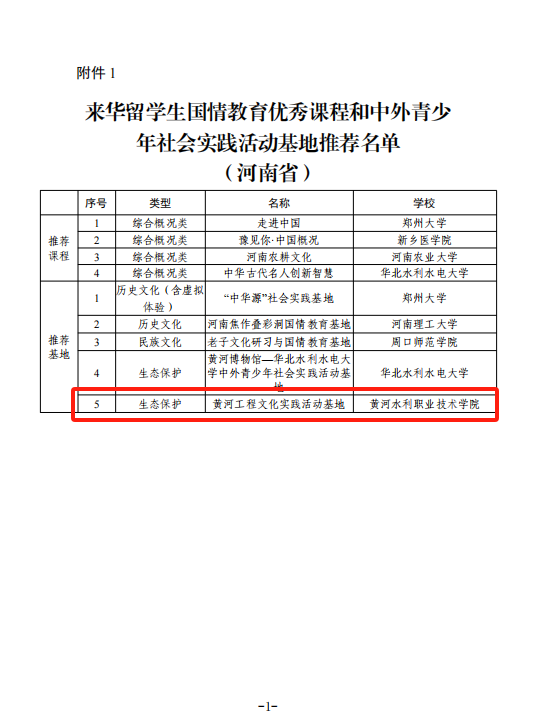The China Education Association for International Exchange (CEAIE) recently announced the inaugural list of “Excellent Courses on China’s National Conditions for International Students” and “Social Practice Bases for Chinese and Foreign Youth.” YRCTU’s submission, the “Yellow River Engineering Culture Practice Base” (in the Ecological Protection category), was successfully selected. In this nationwide selection, Henan Province secured a total of four course and five base designations. YRCTU stands as the sole vocational institution in the province to receive this honor.
The Yellow River Engineering Culture Practice Base comprises the Kunpengshan Hydraulic Engineering Training Base and the Yellow River Engineering Culture Corridor. As a pioneer in China, YRCTU has integrated full-scale replicas of major water engineering projects onto its campus, complementing them with hands-on experiences with advanced hydraulic technology. This provides a unique window for both Chinese and international youth to experience the profound charm of hydraulic engineering and Yellow River culture, offering them a chance to feel the pulse of the nation’s progress.
This designation is a testament to the university’s internationalization strategy, which is built on a holistic approach of integrated design, dual-pronged engagement, and the fusion of three core chains. It is also a proactive initiative to implement the principles of the Outline for Building a Leading Country in Education (2024-2035). Looking ahead, the university will continue to foster the deep integration of quality educational resources, international talent pipelines, and the emerging water-related industry chain, aiming for even greater achievements in international exchange and cooperation.
The selection process was conducted under the guidance of the Department of International Cooperation and Exchange of the Ministry of Education and organized by CEAIE. The initiative aims to build a collaborative educational framework that synergizes the “first classroom” (formal curriculum) and the “second classroom” (extracurricular activities), thereby developing a rich resource ecosystem for courses on China’s national conditions.
